Main menu
Common skin conditions

NEWS
Join DermNet PRO
Read more
Quick links
Authors: Dr Chioma Enweasor, Clinical Fellow, Department of Rheumatology/Allergy and Clinical Immunology, University of California, Davis, School of Medicine, Sacramento, CA, USA; and Dr Sean Deane, Senior Physician, Allergy and Immunology, The Permanente Medical Group, Sacramento, CA, USA. DermNet Editor in Chief: Adjunct A/Prof Amanda Oakley, Dermatologist, Hamilton, New Zealand. Copy edited by Mary-Elaine Luther/Gus Mitchell. January 2020.
Introduction
Demographics
Causes
Clinical features
Complications
Diagnosis
Differential diagnoses
Treatment
Outcome
Lip licker’s dermatitis is a reaction of the lips (eczematous cheilitis) and surrounding skin (irritant contact dermatitis) due to contact with an irritating substance — in this case, saliva from the patient’s own tongue [1,2].
Other names for lip licker's dermatitis are lip-lick cheilitis, irritant contact cheilitis due to lip-licking, lip-licking eczema, saliva-induced contact dermatitis and irritant contact dermatitis due to saliva.
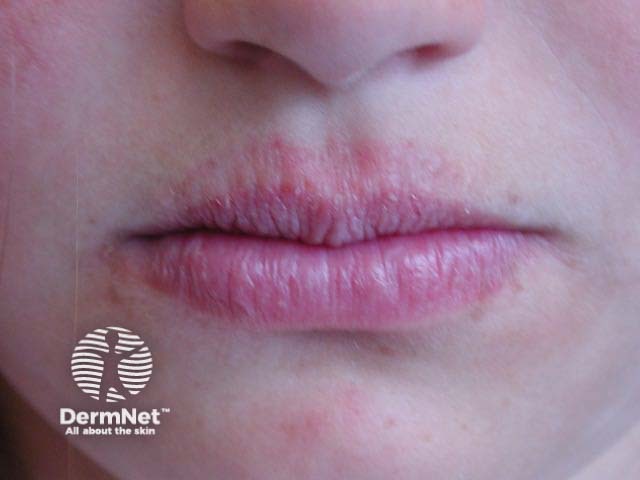

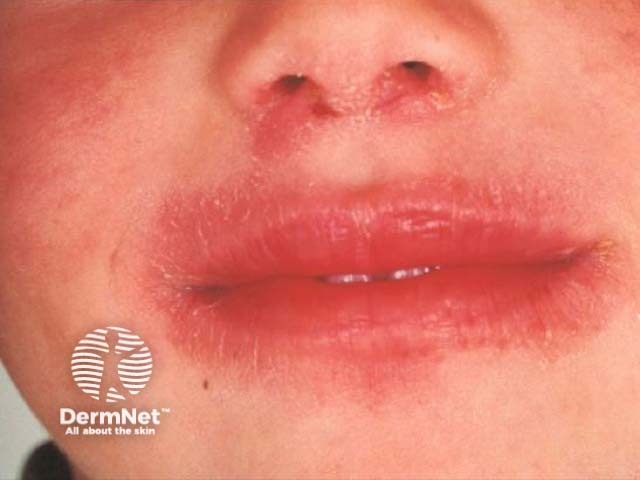
Lip licker’s dermatitis is commonly seen in school-aged children, although it may present at any age [2,3]. In some patients, difficulty with impulse control or cognitive impairment contributes to compulsive lip-licking [4,5].
Lip-licking may begin with or without an initial stimulus, such as chapping in cold, dry weather.
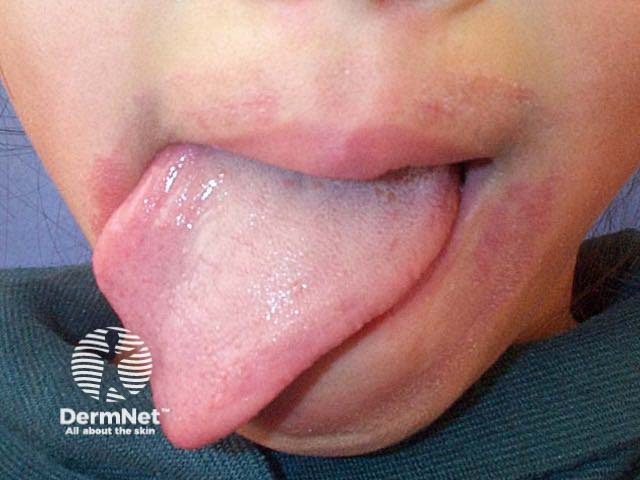
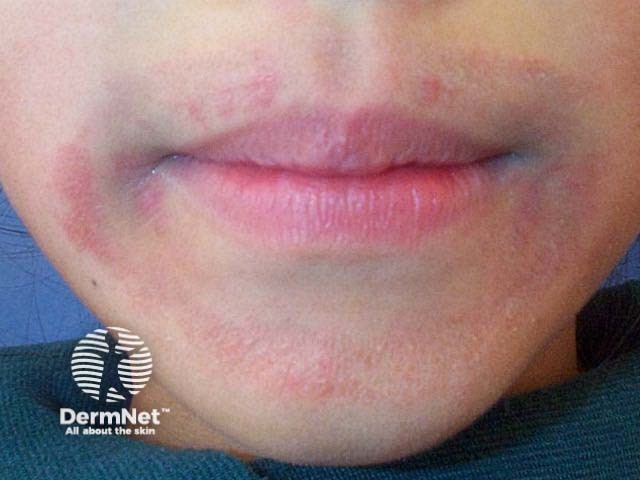
Lip-licking creates chronic redness, dryness, and scaling of the lips and surrounding skin typically in a distribution that corresponds to the reach of the patient’s tongue.
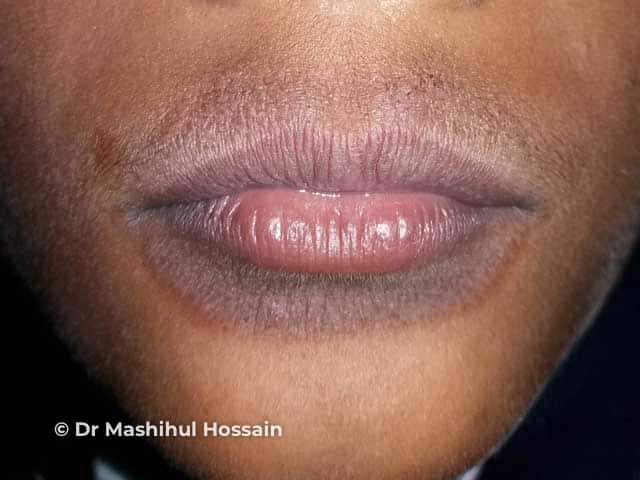
Lip licker's dermatitis
Although lip-licking might seem like a benign habit, there are significant possible complications.
Lip licker’s dermatitis is usually diagnosed clinically, based on the characteristic appearance. Lip-licking may be observed during the evaluation, but direct observation is not required.
Skin biopsy is generally not indicated [3].
Conditions that are often confused with lip licker's dermatitis include:
Behaviour modification to reduce lip-licking is essential. Treatment may include:
Lip licker’s dermatitis often resolves with appropriate treatment but may recur or require long-term treatment if lip-licking behaviour cannot be corrected [5].